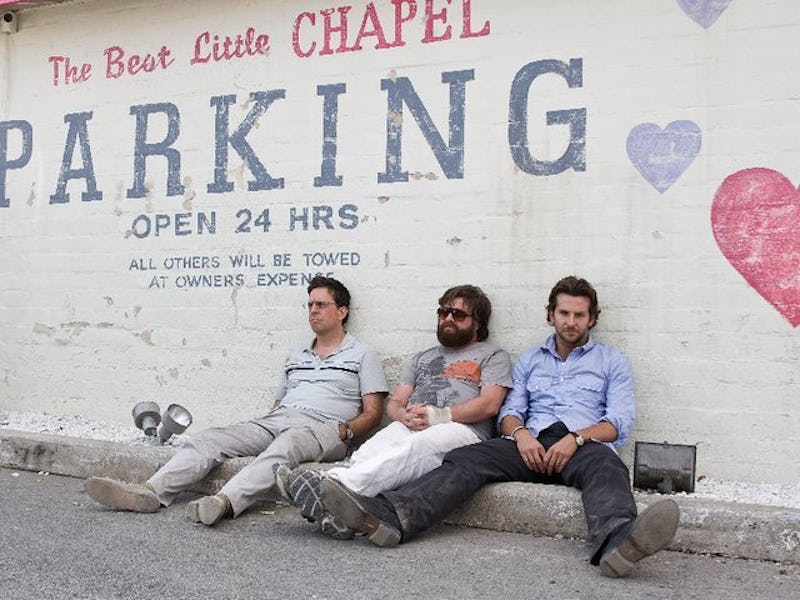Why Do We Get Hangxiety?
Uncertainty about the night before makes the morning after an exercise in shame.

The hung over brain is the most relentless brain. As if it isn’t bad enough that your twitching, whiskey-stained body is pantsless on the kitchen floor, your super-ego insists on making the pain psychological: Did you just kiss and ghost? What did you say to the CEO? Where the hell are your pants?
That feeling of burning shame and guilt over something you’re not even sure you did is known as a “moral hangover,” “hangover anxiety,” or simply hangxiety. The mechanisms behind the physical hangover are well known. Why the effects spill over into psychological territory is less clear.
We do know that blacking out is where it all begins. When partygoers suffer from “alcohol-induced amnesia,” as sociologists at the University of Oslo politely called it in a 2015 study on hangover morality, the natural tendency is to conjecture. And that can be especially stressful, particularly when the brain starts imagining how much of an ass you made of yourself in front of other people. Take it authors of a clinical study published in Contemporary Drug Problems:
“When party participants think back on the night before and suspect that they behaved in ways that were not morally acceptable, even within the party context, they evaluate their behavior as a moral failure and try to anticipate other people’s reactions to this behavior.”
At this point in the hangover, swiping through your phone for clues tends to make things worse. Drunken texts and photos may help fill in the blanks, but more often than not, they just add to the shame. In the darkest moments of our hangovers, what we really seek is assurance. Unfortunately, when the whiskey shakes you awake at six in the morning, there’s nobody to talk to but your paranoid, unrelenting brain because all of your responsible friends are still asleep. The soliloquy doesn’t go well, as the authors explain, because you often have no choice but to spiral downward.
“These emotions are delayed reactions, their potentially appeasing display has no immediate audience, and this may lead to more intense emotions.”
Eventually, one benevolent friend will address your barrage of frenzied texts and begin the healing process. Constructing a narrative where everything checks out is the only way to soothe hangxiety, even when that story involves you doing something terrible. Knowing is better than not knowing (most of the time).
“Participants coped with these emotions socially, through storytelling and teasing, but also by insisting on the alternative normative structure of the party practice. These emotional reactions are spontaneous attempts at reconciling experiences from social contexts that were conducive to moral transgressions with the conception of oneself as a moral person.”
The science offers explanations, not cures, but when you’re in the thick of a shame spiral, it’s helpful to remind yourself that hangxiety eventually dissipates. Unfortunately, stories won’t save you from your actual hangover. But they might provide the relief you need to sleep it off.